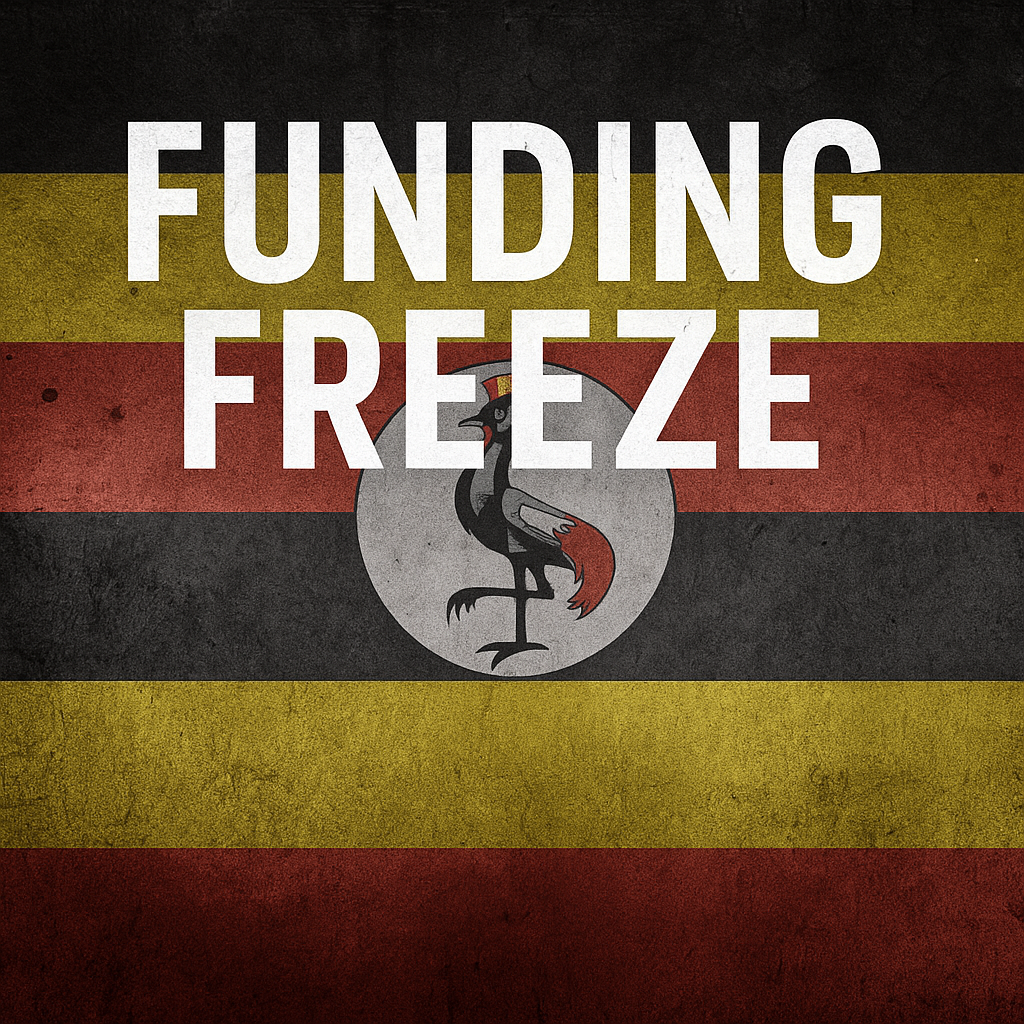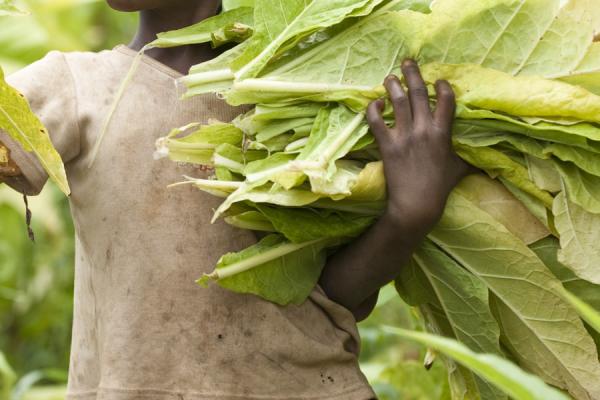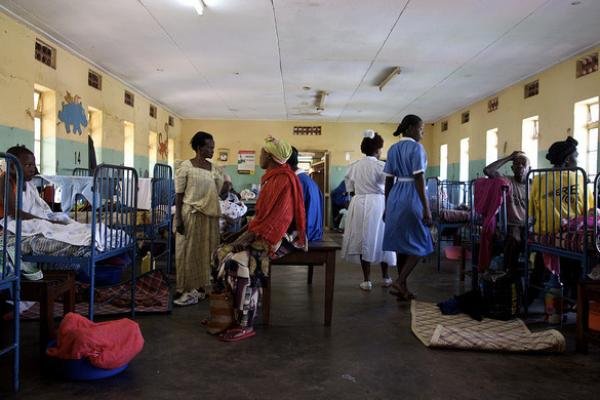
Crisis at the Grassroots: Uganda’s Civil Society Struggles Amid U.S. Aid Freeze

The recent decision by the United States government to freeze sections of foreign aid to Uganda is reverberating far beyond political offices — it is quietly dismantling the lifelines of hundreds of grassroots organizations, many of which serve as the final bulwark for human rights, service delivery, and community empowerment in rural and underserved areas.
On April 15, 2025, citing concerns over Uganda’s deteriorating human rights environment and restrictions on civic freedoms, the U.S. State Department announced a suspension of targeted assistance to Uganda's government and affiliated entities. Although humanitarian aid was exempted, many U.S.-funded development programs, governance projects, and civil society support grants are now in jeopardy.
Uganda’s Grassroots: A Fragile Backbone
Uganda boasts over 2,500 registered non-governmental organizations (NGOs) according to the Uganda NGO Bureau (2024 Annual Report). However, a significant portion — approximately 72% — are small, community-based organizations (CBOs) operating with annual budgets under $100,000. These grassroots entities often lack large donor diversification, making them disproportionately reliant on single major funders such as USAID, the National Endowment for Democracy (NED), and private American foundations like Open Society Foundations.
Without transitional funding mechanisms, many grassroots organizations are facing immediate closure.
"We had a $45,000 USAID grant supporting legal aid services for women facing land evictions. That has now been put on indefinite hold," said the executive director of a grassroots group in Kibaale District, Western Uganda. "We’re already struggling to keep our paralegals in the field."
These organizations are often the only bridge between state failure and community resilience, offering services ranging from mobile health clinics and youth empowerment training to human rights defense and environmental protection initiatives.
The Ripple Effect on Human Rights and Civic Space
Uganda has been experiencing a steady decline in civic freedoms over the past five years. According to CIVICUS Monitor (2024), Uganda is rated as "Repressed," citing harassment of NGOs, media censorship, and suppression of peaceful assembly. The enactment of the 2020 NGO Act placed significant bureaucratic hurdles on operations, including mandatory periodic registration, restrictive funding reporting, and state surveillance of NGO activities.
Grassroots organizations — the least equipped to navigate these hurdles without external support — are now left even more exposed.
Similar patterns have emerged in Tanzania (2016–2020) during President John Magufuli’s administration when Western aid suspensions over human rights abuses weakened civil society without achieving political reforms. In contrast, in Kenya, during the controversial 2017 elections, Western donors opted for continued engagement with local NGOs, insulating critical democracy work from political fallout.
Economic Implications
Beyond rights and democracy, the U.S. aid freeze is expected to have serious economic repercussions:
- Job Losses: Grassroots organizations collectively employ thousands — often women, youth, and marginalized groups. The Uganda NGO Forum estimates that civil society employs over 200,000 people directly or indirectly.
- Service Gaps: In health, education, WASH (Water, Sanitation and Hygiene), and agriculture sectors, grassroots organizations fill critical gaps left by underfunded government programs.
- Increased Vulnerability: Programs supporting LGBTQIA+ persons, persons with disabilities, refugees, and indigenous communities — groups already facing systemic discrimination — are among the first casualties of suspended grants.
According to the Uganda Bureau of Statistics (UBOS) 2023 Poverty Report, over 41% of Ugandans live below the international poverty line. Civil society projects often represent the only accessible support system for these populations.
How Other Countries are Adapting
Nigeria faced a similar donor fatigue crisis in 2015 after contentious elections. Civil society groups responded by forming fundraising cooperatives, leveraging local philanthropy, and investing in digital donation platforms.
In Zimbabwe, despite sanctions and donor withdrawals, grassroots organizations developed hybrid models by integrating income-generating activities such as social enterprises and consulting services to subsidize their advocacy work.
Ugandan organizations are beginning to explore similar adaptations — but without capacity-building support, these pivots may be slow and insufficient to counterbalance immediate funding shortfalls.
A Way Forward: Recommendations
Several international and local analysts have proposed key strategies to avoid the collapse of Uganda’s grassroots sector:
- Donor Flexibility: Allow existing grants to pivot towards operational survival rather than programmatic expansion.
- Local Resource Mobilization: Invest in building fundraising, social enterprise, and digital financial management skills within local organizations.
- Protection Mechanisms: Increase protection for human rights defenders and civic actors under threat.
- Regional Solidarity: Forge stronger alliances among East African NGOs to leverage collective advocacy and funding bids.
- Diversified Funding Sources: Deepen engagement with European Union programs, African philanthropies (like the African Visionary Fund), and Global South solidarity networks.
"The question is not whether Uganda’s grassroots organizations will survive," said Dr. Winifred Atugonza, a civic space researcher based in Kampala, "The question is what kind of damage will occur to Uganda’s democratic future if they don’t."
Conclusion
The freeze in U.S. funding may be a tactical response to rising authoritarianism in Uganda, but its unintended consequence is the weakening of the very organizations that advocate for democracy, rights, and justice. If urgent support measures are not adopted, Uganda could witness the erosion of decades of progress in civil society development — a loss that could take a generation to rebuild.
The international community must tread carefully: punishing oppressive governments must not come at the cost of empowering repressive forces further by disempowering grassroots defenders.
For Uganda's vulnerable communities, the stakes are simply too high.
Share this post:



